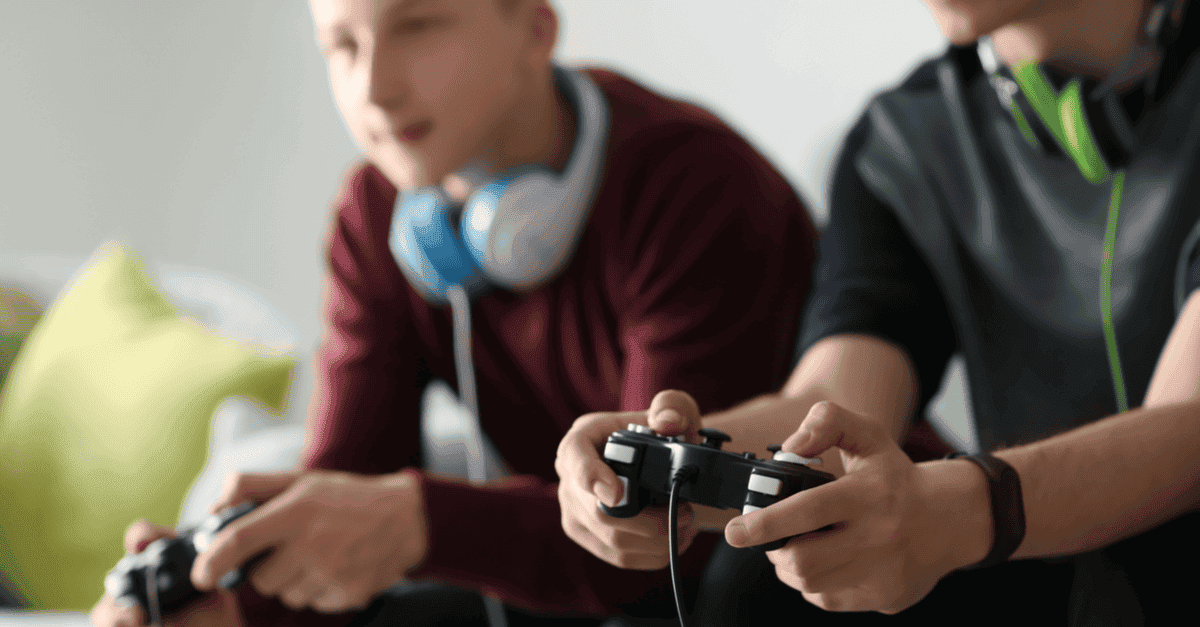Parent gamer
“I’m an avid gamer and have been since I got my first Sega Master System when I was eight years old,” says Vicki. “When I was in my 20s, I received funding from the Prince’s Trust to set up a business that ran 48-hour gaming events.”
Benefits of online gaming
Online gaming provides Nathan with a strong online community, and he is able to play with the same friends regularly. “I think it creates good levels of team building and communication skills, and helps Nathan to make new friends,” says Vicki. “He’s also learned to use a QWERTY keyboard, and has a very good typing speed.”
Gaming with kids
Vicki also enjoys sharing her passion for gaming with her son. “There are loads of retro games from my childhood that are being revamped, and I find it amazing I can game with Nathan and show him some elements of my childhood, too. It’s a wonderful way to spend time together.”
Although Vicki no longer plays as regularly as she once did, gaming is still an important part of family life. “I think my experiences mean I’m very much aware of what goes on via the online gaming community, and it encourages Nathan to talk to me,” says Vicki. “He knows I’m not going to look at him like he’s talking nonsense.”
Parent concern: gaming addiction
For Vicki, the biggest concerns around gaming are setting boundaries for Nathan. The family regularly discuss how much time it’s acceptable to spend online, and at what time of day. “I am concerned about addiction to games, and making sure Nathan has enough time to do other things,” says Vicki.
When Nathan first started playing Fortnite he became quite addicted and the game took over his life. “He was waiting for me to go to bed, so he could go online and play through the night,” says Vicki. “It started to make him ill and he spent a large sum of money on game transactions that came from my PayPal account.”
After this, Vicki put time limits on the family’s router to prevent late-night gaming, and Nathan has strict rules about online spending only being drawn from gift cards.
Prepared to tackle online challenges
Vicki’s experience also means that she’s aware of the less pleasant aspects of the online gaming community. “Online trading in games such as Rocket League can be rife with fake traders or con artists who switch out trade items at the last second, leaving children really upset and angry.”
Another concern is bullying and fall-outs between young people playing online. “I don’t allow gaming headsets, which means I can hear both sides of the conversation,” says Vicki. “I know fall-outs happen and there is bullying, and this means I can listen out for abuse, and put a stop to it before it escalates.”
Playing with people they know
Vicki advises other parents to encourage children to keep their gaming “friends” list small. “Having hundreds of friends online can make you look popular but it’s just opening yourself up too much,” she advises. “Nathan was once sent a copy of a game to test, and one of his friends in the USA asked to log-on to Nathan’s account to download the game for himself.”
Fortunately, Nathan knew the risks and said no. “Nathan knew his account holds a lot of personal information, not to mention the fact that the other person could easily have changed the password and taken control of that account.” ery easy for me to track their online activity. I don’t allow any of my children on the internet unsupervised at home. If they are on the computer an adult has to be present in the room and they know I can log on to their school email accounts. We only have a family iPad, which the children use in airplane mode only.






